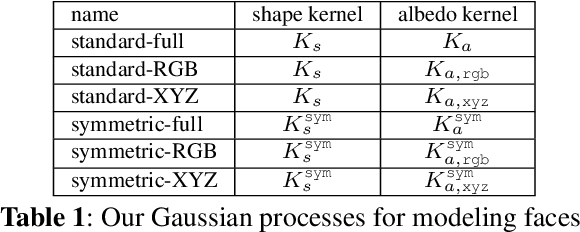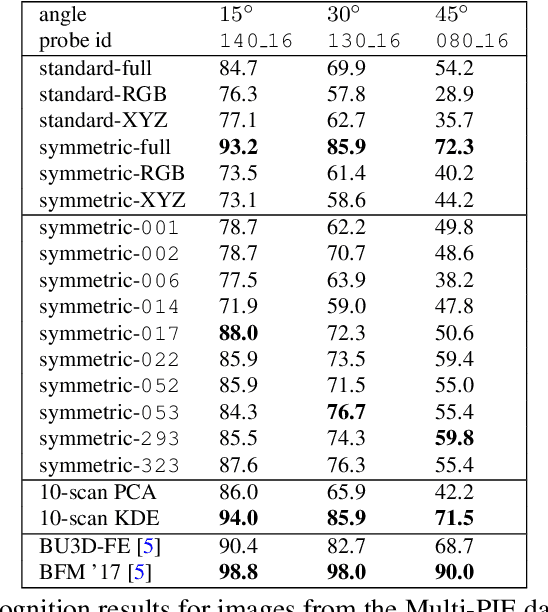Building 3D Generative Models from Minimal Data
Paper and Code
Mar 04, 2022



We propose a method for constructing generative models of 3D objects from a single 3D mesh and improving them through unsupervised low-shot learning from 2D images. Our method produces a 3D morphable model that represents shape and albedo in terms of Gaussian processes. Whereas previous approaches have typically built 3D morphable models from multiple high-quality 3D scans through principal component analysis, we build 3D morphable models from a single scan or template. As we demonstrate in the face domain, these models can be used to infer 3D reconstructions from 2D data (inverse graphics) or 3D data (registration). Specifically, we show that our approach can be used to perform face recognition using only a single 3D template (one scan total, not one per person). We extend our model to a preliminary unsupervised learning framework that enables the learning of the distribution of 3D faces using one 3D template and a small number of 2D images. This approach could also provide a model for the origins of face perception in human infants, who appear to start with an innate face template and subsequently develop a flexible system for perceiving the 3D structure of any novel face from experience with only 2D images of a relatively small number of familiar faces.
 Add to Chrome
Add to Chrome Add to Firefox
Add to Firefox Add to Edge
Add to Edge